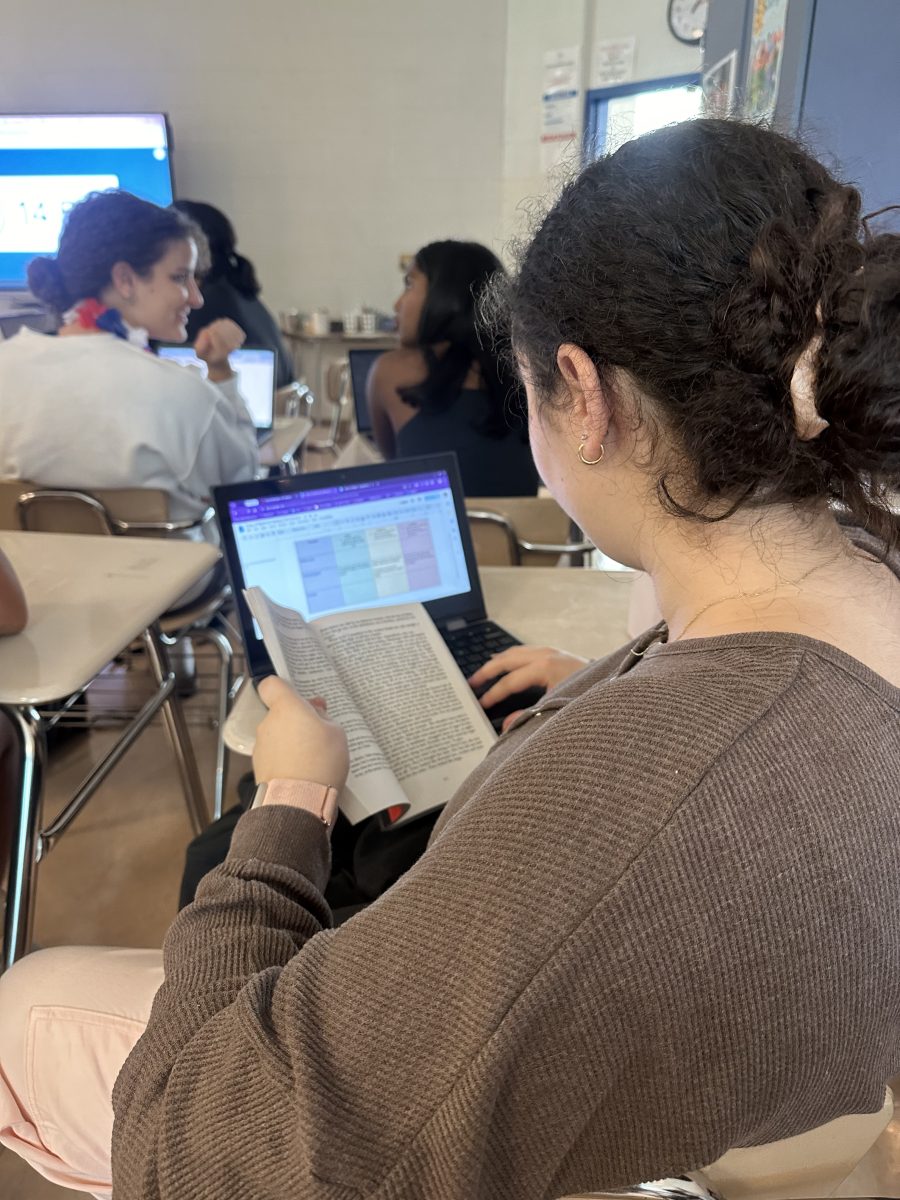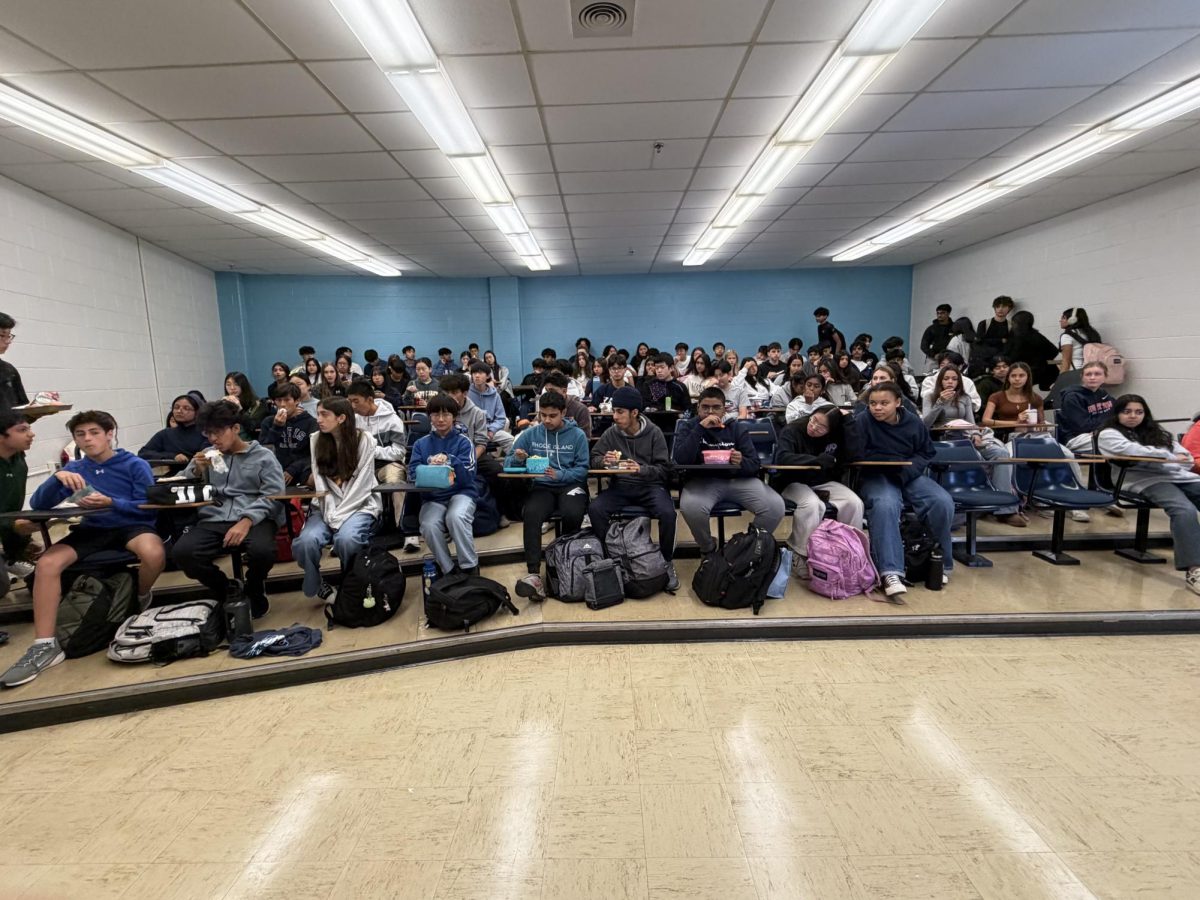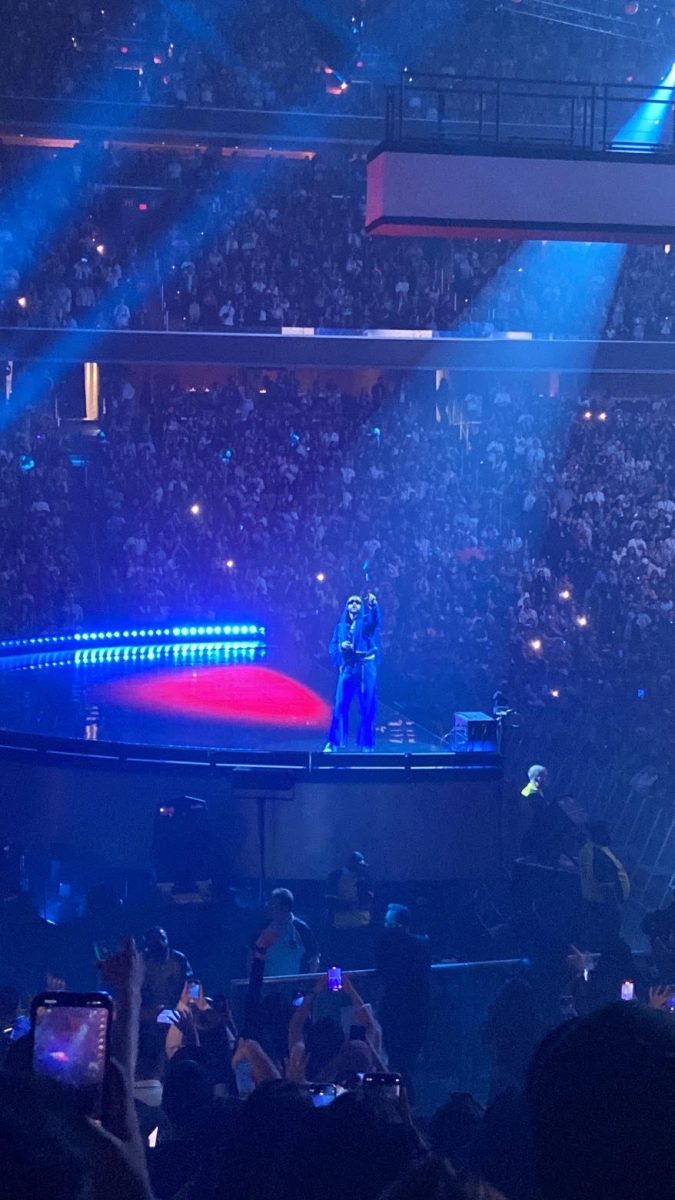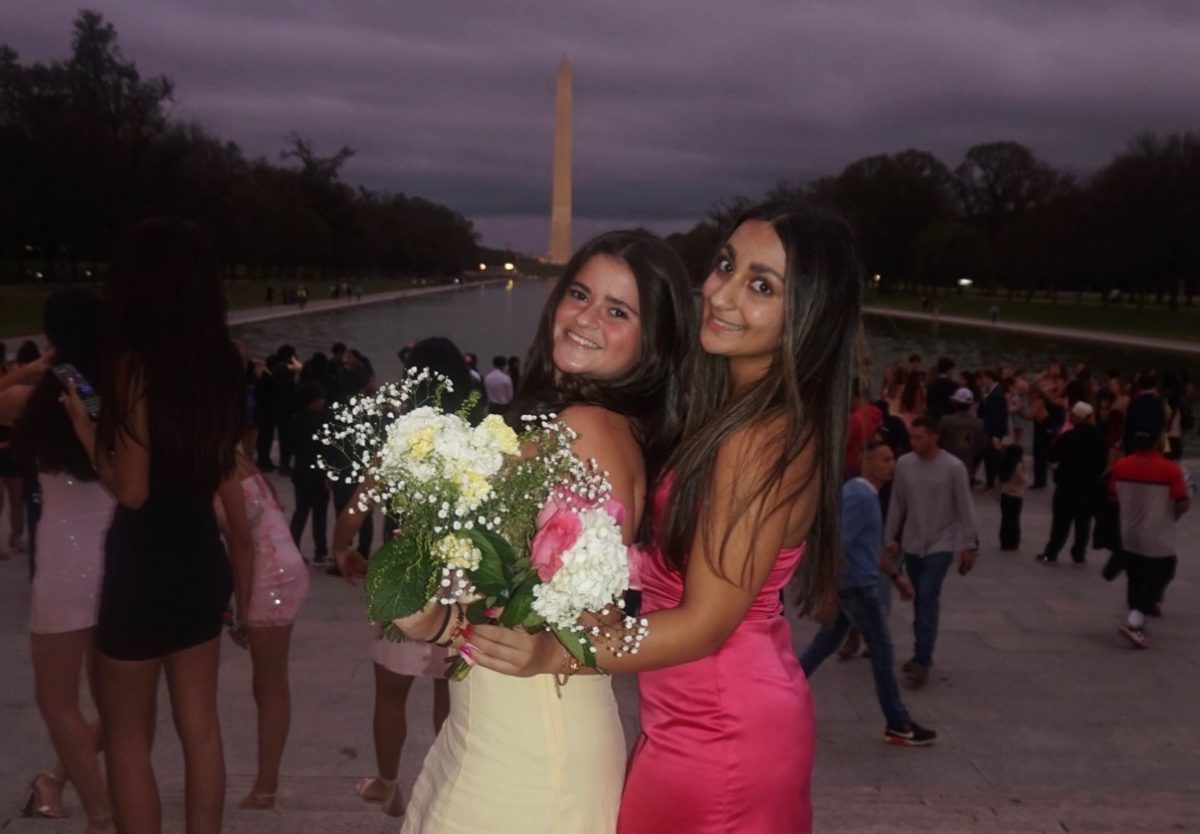Literature has been deemed one of the most important ways to spread ideas. To some, the ideas these books spread are not fit for certain communities, leading to book bans. However, this is not the case for the students in this county. Banned books appear throughout MCPS curriculum, which raises the question: What if we never read these books?
This year, the AP Literature students were given a list of books for summer reading. The one book every student was required to read was “The Handmaid’s Tale,” by Margaret Atwood. This book is known as one with controversial topics, so much so that one of the reviews on the back cover encourages people to read it before they no longer can. AP Lit teachers defend the value of this book. “I believe firmly in the freedom to read what you want … I think that it is a part of growing up to be getting counter ideas that challenge us, even if it is challenging us in a way that maybe doesn’t feel great because from that struggle you learn more about your own self,” AP Literature teacher Zachary Lowe said.
Those against book bans might ask why communities feel the need to remove certain books from their libraries and schools. In Lowe’s opinion, “A lot of times books are banned because they’re the kind of books that confront things that are uncomfortable, like the racist history of America. Like what it means to feel differently about religion than your parents, about finding one’s identity in terms of sexuality or how they identify in terms of their ancestry, or whatever it is. These are things that we have to do to become adults and a lot of times when parents don’t want a certain book to be taught it’s because they are afraid of what it’s going to happen if their child is having those thoughts.”
While Maryland’s Freedom to Read Act bans book censorship in public libraries, parents in certain counties are working to get books banned in school libraries. In nearby Howard County, this issue has become increasingly prevalent. A Howard County high school counselor, who asked not to be named, said, “Before I asked a teacher to complete [this reporter’s] questions my administration suggested against it. The book ban topic is hot right now in Howard County and she was not comfortable putting our name to anything.”
To students who oppose book bans, these books are a crucial piece of the curriculum taught, and without them, students wouldn’t have a comprehensive education. “The curriculum would be less inclusive and more one-sided. We wouldn’t have the nuances that certain books bring, and we wouldn’t be able to learn about different lives,” senior Lexie Lindauer said.
Students and teachers at this school seem to feel that banned books go against the main purpose of literature and that if students were forced to stop reading these books, the effect would be negative. “If I felt pressured to take out certain books I don’t know how long I could stay teaching, I really don’t. If I felt that that was a real threat in this county I think I would struggle with continuing to teach,” Lowe said.








